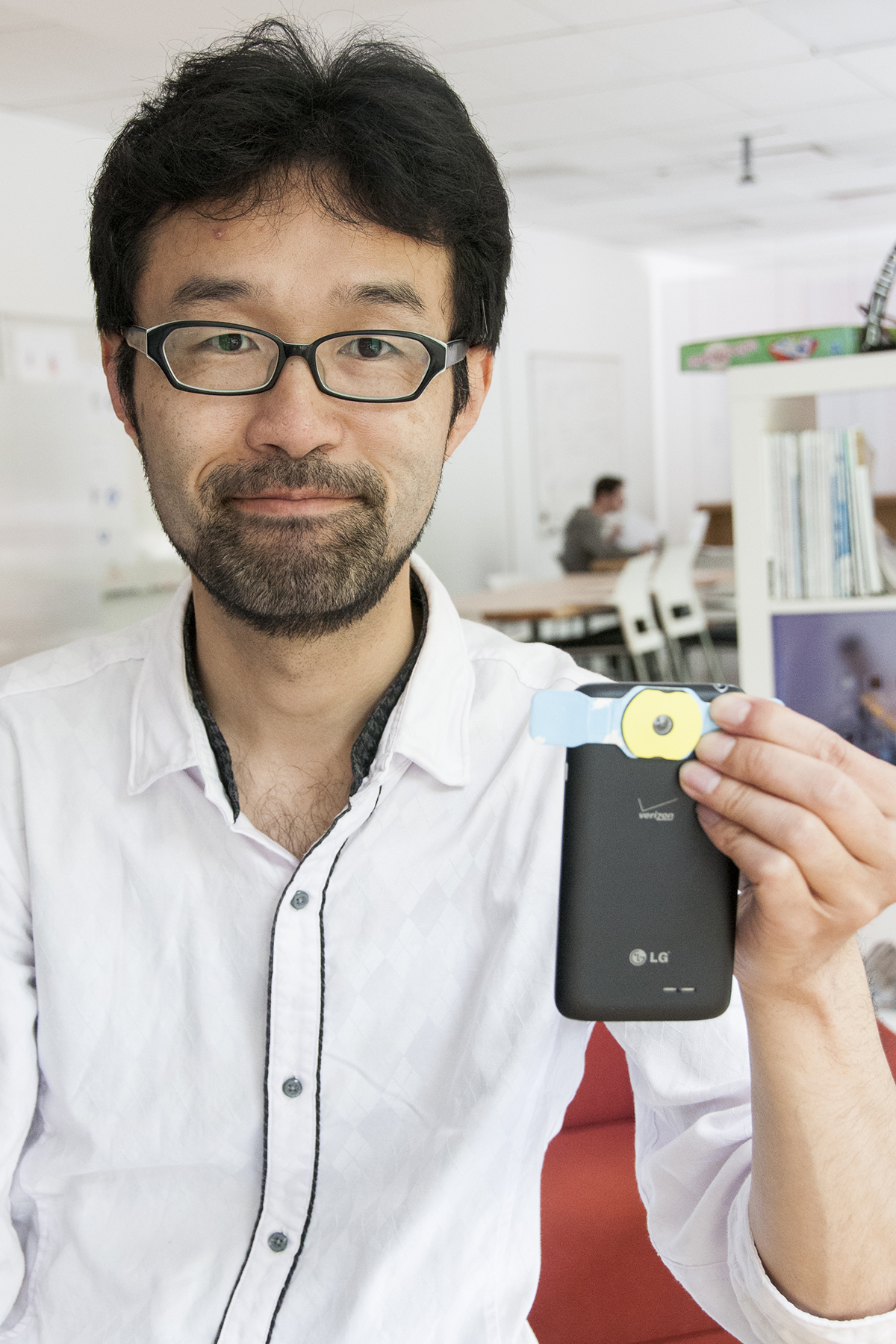Japanese, UIC researchers find $7 solution to fight infertility

Yoshitomo Kobori, a visiting scholar from Japan, worked with UIC researchers to develop a phone app that uses a $7 lens to analyze semen samples. The invention could be useful in Japan, where the decreasing birthrate is a national problem. Photo: Roberta Dupuis-Devlin/UIC Photo Services
Yoshitomo Kobori traveled 6,300 miles from Japan to Chicago to discover a solution to a problem back home.
Kobori is a visiting scholar at UIC, collaborating with researchers in urology and at the Innovation Center to address a big problem in Japan: infertility.
Japan’s birth rate declined to a record low in 2014, with only about 1 million babies born — 1 million fewer than 1974, according to health ministry figures. Japan was ranked 208 among 224 countries in fertility last year.
“In Japan, fertility is a very big problem,” Kobori said. “Making babies is a national project.”
His work at UIC led him to discover a $7 lens, made in Japan, that could help address the problem. He’s using the lens to create an iPhone microscope to analyze semen samples at home, with help from an app that’s in development.
“If I hadn’t had collaborations at the Innovation Center, I wouldn’t have thought of this idea,” Kobori said. “The lens is not made for a smart phone — it was made nine years ago. I’m improving the lens and thinking about how to attach it to a smart phone and analyze sperm.”
Kobori believes men would be more likely to analyze their sperm if they could do it in the privacy of their home. “Men are thinking that semen analyses are an embarrassment, inconvenience, disgrace and waste of time,” he said. “We need a semen test at home.”
Kobori began his two-year stay at UIC in September after working at Dokkyo Medical University Koshigaya Hospital. His former boss collaborates with UIC urology head Craig Niederberger, who helped arrange the visiting scholar position.
“Imagine all of the amazing innovations that are just waiting — all of the technology that’s hidden away in different parts of the world, waiting for people to get together,” Niederberger said.
Kobori’s use of a simple lens for a complex problem is “stunning,” Niederberger said. Kobori disclosed his technology to the UIC Office of Technology Management and is applying for a patent that he would jointly own with UIC researchers.
“When you can put pieces together in new ways to solve a problem — and when you can do that with something that’s inexpensive and readily available, then you’ve done something that’s really great,” Niederberger said.
Kobori and UIC researchers are also working to create better containers to collect and store semen samples. The containers now used look smooth, “but to a sperm, there are a billion places to hide,” Niederberger said. “Then the technician can’t get the sperm out when the time comes for in vitro and it’s very frustrating for everyone.”
Kobori’s containers use an antioxidant to help preserve the sperm when it’s frozen, Niederberger explained. “The new container has better results after thawing.”
After his stay at UIC ends, Kobori will return to Japan to focus on treating male infertility.
“I want to absorb everything I can at the university,” he said. “I’ve met people from over 30 countries in Chicago. Everyone has different cultures and different ways of thinking.
“I couldn’t have had these precious experience if I had stayed in Japan.”
